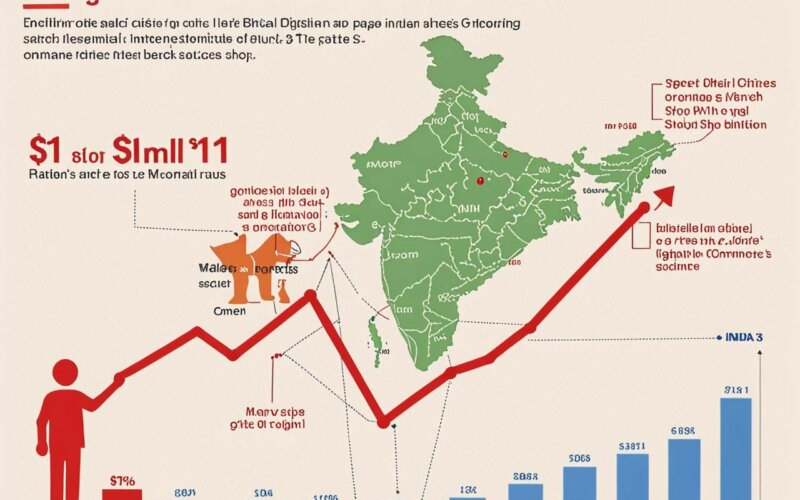India's e-commerce domain is on a steep upward trajectory, with projections estimating its value to hit a staggering $111 billion by 2024, as highlighted by the Indian Brand Equity Foundation (IBEF). This surge is not confined to the sprawling urban jungles but is spreading its roots deep into tier-2 and tier-3 cities, transforming the shopping habits of the Indian populace. From the daily groceries to the luxury of furniture, online shopping portals are witnessing unparalleled patronage, attributing their success to the proliferation of affordable smartphones and data plans. This digital revolution has not only democratized shopping but has also encouraged retail giants to rethink their strategies, aiming for a significant slice of India's burgeoning online retail market, expected to command 10.7% of the total retail pie by 2024.
- Key takeaway one: India's e-commerce industry is predicted to reach $111 billion by 2024, driven by affordable tech and wider internet access.
- Key takeaway two: The sector's growth is underpinned by an expanding online consumer base, with 125 million current shoppers set to increase significantly.
- Key takeaway three: Affiliate marketing emerges as a powerful strategy for new e-commerce platforms, offering cost-effective and performance-driven results.
As this digital marketplace grows, the competitive landscape becomes increasingly complex, with new entrants and established players vying for consumer attention. Traditional marketing strategies are often rendered obsolete in this fast-paced environment, pushing businesses to explore innovative avenues for engagement and return on investment (ROI). Among the myriad strategies, affiliate marketing has carved a niche for itself, offering a lifeline to new e-commerce platforms that are navigating the choppy waters of digital marketing with limited budgets.
The Winning Strategy: Affiliate Marketing
At its core, affiliate marketing is a symbiotic relationship between a business and an affiliate, where the latter promotes the former's products or services in exchange for a commission on sales. This performance-driven approach ensures that businesses pay only for tangible results, making it an exceedingly attractive option for startups and SMEs venturing into the e-commerce arena.
Why Affiliate Marketing?
- Authentic Recommendations: In an era where consumer decisions are heavily influenced by social proof, endorsements from trusted affiliates can significantly impact purchasing behavior. Affiliates, through their curated content, lend credibility to products and brands, steering their followers towards informed choices.
- Increased ROI: Unlike traditional marketing efforts, where costs are sunk into campaigns with uncertain outcomes, affiliate marketing's pay-for-performance model guarantees a higher ROI. Businesses benefit from direct access to engaged audiences, paying only when a sale is finalized.
- Brand Awareness and Reach: Collaborating with affiliates can dramatically enhance a brand's visibility and market penetration. These partnerships enable businesses to reach untapped segments, leveraging the affiliate's existing follower base for targeted exposure.
- Data Tracking: The insights garnered from affiliate marketing campaigns are invaluable, offering a deep dive into customer behavior and preferences. This data drives strategic decisions, optimizing future campaigns for better performance and conversions.
- SEO Boost: High-quality backlinks from affiliates' platforms not only drive traffic but also bolster a website's SEO standing. Engaging content shared by affiliates enhances the brand's online presence, contributing to its organic growth and visibility.
In conclusion, as India's e-commerce landscape flourishes, the role of affiliate marketing in driving success for new platforms cannot be overstated. It offers a potent mix of credibility, targeted reach, and measurable outcomes, making it an indispensable tool in the digital marketer's arsenal. While the path to e-commerce dominance is fraught with challenges, strategic affiliations with the right partners can pave the way for sustainable growth and profitability in this competitive arena.










